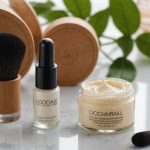Radiant skin starts from within, and a plant-based diet might be your secret weapon. Packed with antioxidants, vitamins, and hydrating properties, plant foods can transform your skin’s appearance. Discover how transitioning to a diet rich in fruits, vegetables, nuts, and seeds can combat inflammation, boost hydration, and enhance your natural glow. This journey not only improves skin health but also promotes overall well-being. Explore the compelling reasons to embrace a plant-based lifestyle for luminous skin and greater vitality. Your skin deserves this nurturing change.
Introduction to Plant-Based Diet and Skin Health
A plant-based diet primarily focuses on consuming foods derived from plants, including fruits, vegetables, grains, nuts, and seeds. This dietary approach excludes or minimizes animal products and is celebrated for its numerous health benefits. When it comes to skin health benefits, the nutrients found in plant-based foods play a pivotal role.
Additional reading : Transform Your Sleep Space: Tips for Enhancing Rest and Boosting Skin Health
The connection between diet and skin health is well-documented. A diet rich in antioxidants, vitamins, and minerals helps combat oxidative stress, which is a significant factor in skin aging and damage. Plant-based foods are abundant in these nutrients, making them excellent for maintaining healthy skin. For instance, fruits and vegetables are packed with vitamins A, C, and E, which are essential for skin repair and protection.
Moreover, the importance of nutrients such as omega-3 fatty acids, often found in nuts and seeds, cannot be overstated. These nutrients help maintain the skin's lipid barrier, keeping it hydrated and supple. Whole grains provide essential B vitamins that support skin regeneration and repair.
Also read : Ultimate Guide to Selecting Ideal Outdoor Gear for Mountain Hiking in Changing Weather Conditions
Incorporating a plant-based diet can lead to noticeable improvements in skin health, offering a natural and effective way to achieve a radiant complexion.
Key Nutrients for Radiant Skin
Understanding the role of nutrients for skin health is crucial for achieving a glowing complexion. Among these, vitamins C, E, and A stand out due to their significant impact on skin vitality. Vitamin C, found abundantly in citrus fruits and leafy greens, is essential for collagen production, which keeps the skin firm and youthful. It also acts as a powerful antioxidant, protecting the skin from free radical damage.
Vitamin E, present in nuts and seeds, offers similar antioxidant benefits. It helps shield the skin from environmental stressors like UV rays and pollution, reducing the risk of premature aging. Meanwhile, vitamin A, often sourced from carrots and sweet potatoes, supports skin cell regeneration and repair, promoting an even skin tone and texture.
Antioxidants, in general, play a pivotal role in safeguarding the skin against oxidative stress. They neutralize harmful free radicals, thus preventing cellular damage and maintaining skin health. Additionally, healthy fats, such as omega-3 fatty acids from plant sources like flaxseeds, contribute to skin hydration and elasticity. These nutrients, combined with adequate water intake, ensure the skin remains hydrated and supple, enhancing its natural radiance.
Mechanisms of Skin Improvement
Skin improvement through a plant-based diet involves several dietary mechanisms that contribute to healthier skin. One primary way is by reducing inflammation. Plant-based foods are rich in antioxidants and anti-inflammatory compounds, which help to decrease inflammation in the body. This reduction can lead to fewer skin flare-ups and a more even complexion.
The role of fiber in these diets is also significant. High in fruits, vegetables, and whole grains, fiber promotes gut health by supporting a balanced microbiome. A healthy gut can lead to improved skin conditions, as gut health is closely linked to skin health. When the gut is balanced, it can help reduce issues like acne and eczema.
Moreover, plant-based diets can positively affect hormonal balance. Hormonal imbalances are often a culprit in acne development. By emphasizing whole, unprocessed foods, these diets can stabilize hormones, potentially reducing acne breakouts. Foods like flaxseeds and chia seeds are especially beneficial due to their hormone-regulating properties.
Incorporating a plant-based diet can thus be a powerful tool for skin improvement, addressing inflammation, gut health, and hormone balance simultaneously. The result is clearer, healthier skin.
Scientific Evidence Supporting Plant-Based Diets
Scientific studies have increasingly highlighted the connection between plant-based diets and skin health. Research consistently shows that individuals who adopt a diet rich in fruits, vegetables, nuts, and seeds often experience improvements in skin conditions. A pivotal study published in the Journal of Dermatology found that participants following a plant-based diet reported fewer instances of acne and other inflammatory skin conditions. This research underscores the role of antioxidants and anti-inflammatory compounds in promoting skin health.
Further skin health research has revealed that plant-based diets can reduce the risk of psoriasis and eczema. These findings are supported by the presence of essential nutrients like omega-3 fatty acids, which help maintain skin hydration and elasticity. Studies also indicate that the high fiber content in plant-based diets supports gut health, which is closely linked to skin condition improvements.
Experts in dermatology and nutrition advocate for dietary changes to enhance skin health outcomes. They emphasize the importance of consuming a variety of plant-based foods to ensure a balanced intake of vitamins and minerals. This approach not only benefits the skin but also supports overall health, making plant-based diets a holistic solution for maintaining a radiant complexion.
Personal Testimonials and Success Stories
Exploring the personal experiences of individuals who have transitioned to a plant-based diet reveals compelling skin health transformations. Many have shared testimonials highlighting the positive impact on their complexion.
One such story involves Sarah, who struggled with persistent acne. After adopting a plant-based diet, she noticed significant improvements. Her skin became clearer, and the frequency of breakouts reduced dramatically. Before this change, Sarah tried various treatments with limited success. However, the transition led to a more radiant complexion, showcasing the potential benefits of plant-based eating.
Another testimonial comes from Mark, who dealt with eczema. Initially sceptical about dietary changes, he embraced a plant-based lifestyle. Over time, Mark observed a reduction in inflammation and itchiness, attributing these improvements to the nutrient-rich foods he consumed.
Despite these successes, transitioning to a plant-based diet isn't without challenges. Common hurdles include cravings for familiar foods and the need to find suitable plant-based alternatives. Yet, many individuals triumph over these obstacles, discovering newfound energy and skin vitality.
These personal experiences underscore the transformative potential of plant-based diets, offering hope and inspiration to those seeking healthier skin.
Tips for Transitioning to a Plant-Based Diet
Embarking on a transitioning diet can seem daunting, but with the right approach, it becomes manageable and rewarding. Here are some beginner tips to ease the journey into a plant-based lifestyle.
Start by gradually incorporating more plant-based foods into your meals. This could mean adding an extra serving of vegetables to your lunch or choosing a plant-based protein like lentils or chickpeas for dinner. Meal planning is crucial for beginners. Plan your meals for the week, focusing on a variety of fruits, vegetables, grains, and legumes. Preparing meals in advance can save time and ensure you have nutritious options readily available.
Another helpful strategy is to explore plant-based recipes that excite you. Trying new dishes can make the transition enjoyable and introduce you to a wide array of flavours and textures.
Be mindful of common pitfalls. It's easy to rely on processed plant-based products, but these can be high in sodium and additives. Aim for whole foods to get the most nutritional benefits. Additionally, ensure you're getting enough protein, iron, and vitamin B12, which are essential for a balanced diet.
By following these beginner tips, transitioning to a plant-based diet can be a smooth and fulfilling experience.
Recipes for Healthy Skin
Incorporating skin health recipes into your daily meals can be both delicious and beneficial. Here are some plant-based meals that are rich in nutrients to support a glowing complexion.
Breakfast
Start your day with an antioxidant-packed smoothie bowl. Blend spinach, banana, and a handful of blueberries, then top with chia seeds and sliced almonds. This meal provides vitamins A and C, essential for skin repair and protection.
Lunch
For lunch, enjoy a quinoa salad with chickpeas, cherry tomatoes, and avocado. Drizzle with olive oil and lemon juice. These ingredients offer omega-3 fatty acids and vitamin E, which help maintain skin elasticity and hydration.
Dinner
A nourishing dinner option is a lentil stew with carrots, sweet potatoes, and kale. Rich in fiber and vitamins, this dish supports gut health and skin regeneration.
Snacks
For snacks, consider carrot sticks with hummus or a handful of walnuts. These options provide additional antioxidants and healthy fats.
Variety and balance are crucial in a plant-based diet. Ensuring a diverse intake of fruits, vegetables, grains, and legumes not only enhances skin health but also supports overall well-being. By experimenting with different plant-based meals, you can enjoy tasty dishes while promoting a radiant complexion.
Potential Pitfalls and Considerations
Transitioning to a plant-based diet can offer numerous benefits, but it's crucial to be aware of potential dietary pitfalls and skin health considerations. One common issue is nutrient deficiencies, particularly in vitamin B12, iron, and protein. These nutrients are vital for maintaining healthy skin and overall well-being. Plant-based sources like lentils, chickpeas, and fortified cereals can help meet these needs, but supplementation might be necessary.
Consulting with healthcare professionals is essential when making significant dietary changes. They can provide personalized advice and help monitor nutrient levels, ensuring your diet supports skin health effectively. A dietitian can guide you in selecting the right foods and supplements to avoid deficiencies.
Maintaining skin health while transitioning to a plant-based diet involves careful planning. Incorporate a variety of fruits, vegetables, nuts, and seeds to ensure a balanced intake of essential nutrients. Pay attention to hydration, as water is crucial for skin elasticity and hydration.
- Monitor nutrient intake
- Consult healthcare professionals
- Prioritize hydration
By addressing these considerations, you can enjoy the benefits of a plant-based diet while maintaining vibrant skin health.
Conclusion and Call to Action
Embarking on a skin health journey through a plant-based lifestyle can be both rewarding and transformative. By prioritising foods rich in vitamins, minerals, and antioxidants, you can support your skin's vitality and overall well-being. As you explore these dietary changes, remember that each individual's experience is unique.
Consider leveraging various resources to deepen your understanding of plant-based diets. Books, documentaries, and online communities can provide valuable insights and support. Engaging with these materials can enhance your knowledge and empower you to make informed choices for your skin health journey.
We invite you to share your own experiences and insights as you navigate this path. Whether you've already embraced a plant-based lifestyle or are just beginning, your stories and questions can inspire and guide others. Join discussions in forums or social media groups dedicated to plant-based living, where you can connect with like-minded individuals.
Your journey towards improved skin health is a personal one, and exploring plant-based options can open new avenues for achieving a radiant complexion. Embrace the opportunity to learn, share, and grow as you discover the benefits of a plant-based lifestyle.











